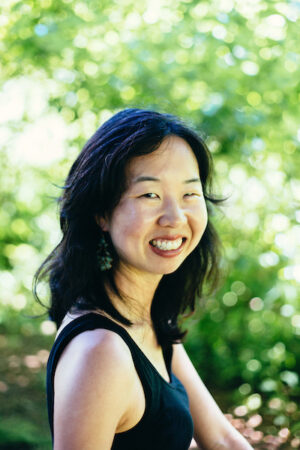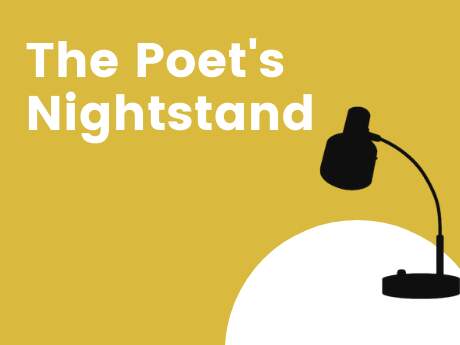The Poet’s Nightstand
The Poet’s Nightstand with Shelley Wong
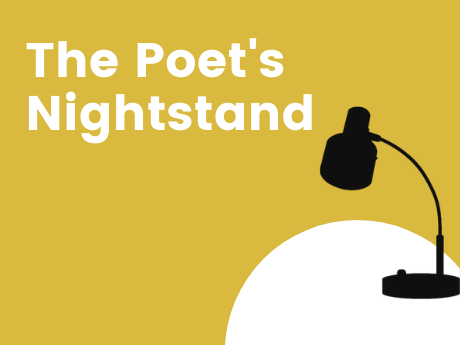

Jennifer Huang
Return Flight (Milkweed Editions)
I feel lucky to be alive at the same time as so many incredible queer writers of color. Jennifer Huang’s debut is brilliantly realized in its lyrical leaps and emotional complexity, naming what the body knows before we have the words. Here, what can be said and not said is declared, and co-exists with a “refusal to explain”—everything is held and carried forward. These accumulations mark a journey intertwined with myth, considerations of home, generations of a Taiwanese family, and a return to the self that can be soft and say “I want / to be seen like that.” This is a book of opening and blooming, one of gentle trust and honesty (“I am not accustomed to this gentle; / I crush it.”), of reaching toward connection. A defiant ecstasy in being like chou doufu (“their protests only make me reek louder, happier—joyful stench”) co-exists with the vulnerability of intimacy. Huang’s sensitive clarities and supple lines invite a patient read (“Give her space to / say not words; then, when she’s ready, many”). Her voice is soulful and rich with care, so that we are attune to its precision and turns as we follow, flying.
Purchase Book
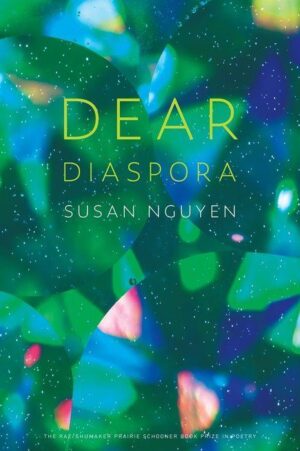
Susan Nguyen
Dear Diaspora (University of Nebraska Press)
For the past several years, the University of Nebraska Press Raz/Shumaker Prairie Schooner Book Prize series has been debuting fantastic poets and this 2021 collection by Susan Nguyen is another gem. Nguyen deftly moves through anaphora, questions (“Can you list the responsibilities of a needle? When did you lose the color green?”), epistolary, prose poem, and documentary poetry forms, chronicling girlhood, family history, a father’s disappearance, and the lives of Vietnam War refugees. I’m drawn to the expanse of these poems, how they move across the page, their candor and admissions, the conversations and the asking—to attend to what one doesn’t know and can’t know between the generations in the Vietnamese immigrant community (“My mother said: Our country no longer exists”). These attentive poems are vivid in their grief, wonder, play, and insistence on memory and imagination (“how to speak about language where there is no language . . . I am 2 parts fish sauce / 1 part lime juice sugar dissolving / a wet match”).
Purchase Book
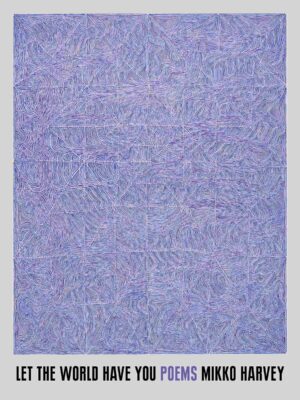
Mikko Harvey
Let the World Have You (House of Anansi)
Following his marvelously startling debut collection Unstable Neighbourhood Rabbit, Mikko Harvey’s second book reveals curious new dimensions, alternating between quick-glimpse poems and longer ones that gently release their surprises. Its cast of characters includes a whale on fire, potential mayoral candidates, a baker at a farmer’s market, and a mean butterfly. I’m fascinated by how the poems reshape in their rhetoric (“I’m trapped inside / a script I wrote / for myself”) and through their resonant encounters and reassurances. Some operate a bit like palindromes, hourglasses, accordions—all with a light touch. Harvey’s wondrous poems dwell in impermanence and intimacy, unveiling the mysteries among us, within us, and between us (“when you fall /asleep is when / I need you / most desperately, because /without your eyes on it this / whole town disappears”). As a way out from spiraling aimlessly, it was a happy relief to enter the world of this magical book.
Purchase Book
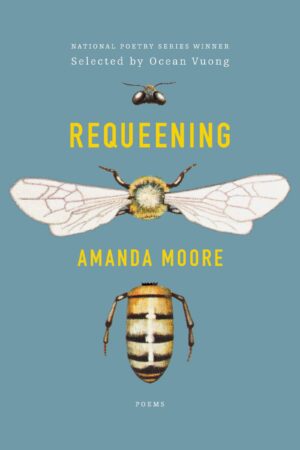
Amanda Moore
Requeening (Ecco)
As a grown woman debuting over 40, I feel a particular kinship to uplift Amanda Moore’s beautiful National Poetry Series book, a collection that looks deeply at love, the body, and the regeneration of both. An affirmation of matriarchal power and care-taking lights the way, as the woman speaker moves through decades as a daughter, wife, and mother. The sensual, unflinching details of the bee world (“Drop the honey to your tongue. Taste these fields.”) collide with narrative domestic interiors; the book itself becoming a hive-like wonder of homes within a home. This intricacy is echoed in the speaker’s body—as a mother descended from a series of mothers—changed by pregnancy, illness, grief, and recovery. As a child-free woman, I admire the affectionate messiness of the mother-daughter poems, the glimpses of love’s tender distances (“she made her life / a leaving”). You can sense the heart and time that went into this book, as it holds so much emotional terrain, reaching forward and back across the generations, keeping the reader close.
Purchase Book
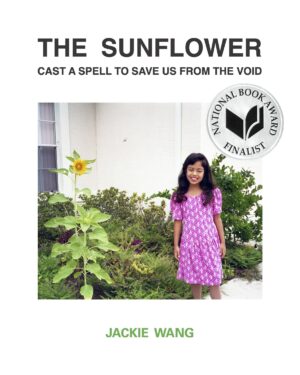
Jackie Wang
The Sunflower Cast A Spell to Save Us from the Void (Nightboat Books)
“Yes, we are all living by three tempos: party, catastrophe, and limerence”—this is a miracle book. Jackie Wang’s polyphonic dream poems swerve and veer in ecstatic collisions, alarming transformations (“Fucking Cindy in a geodesic dome that I built by hand / During sex Cindy turns into a man who makes fun of me”), and traumatic recall, while moving into a mélange of radical possibilities and explorations that lean toward comfort (“I dream of you every night and I worry that the more I dream the more I overwrite you, the more I re-write the memory of you”). I’m haunted by Angela, the decapitated angel. The distilled dangers of Wang’s poems recall Marosa di Giorgio while their vulnerable bodily excesses remind me of Kim Hyesoon and Kim Yideum. But truly, Wang is her own unique force. I’m dazzled by her brilliant mind, capacious imagination, and where she takes us, her startling lines carrying the shock of recognition.
Purchase Book

